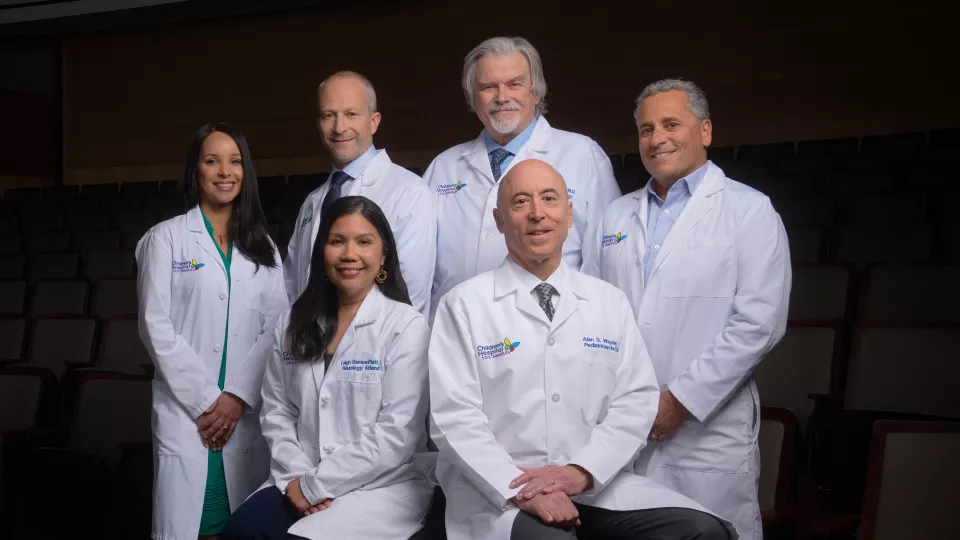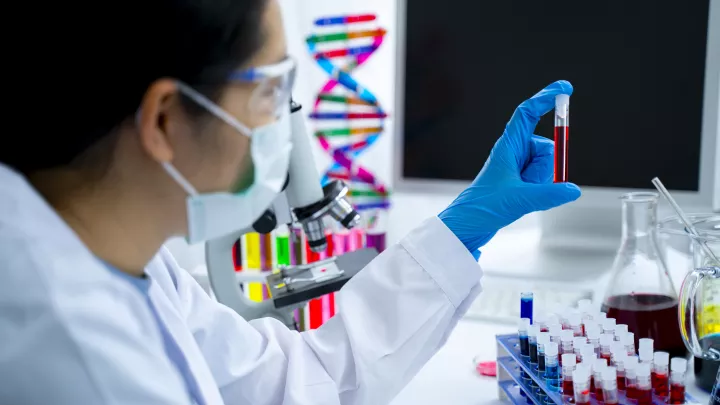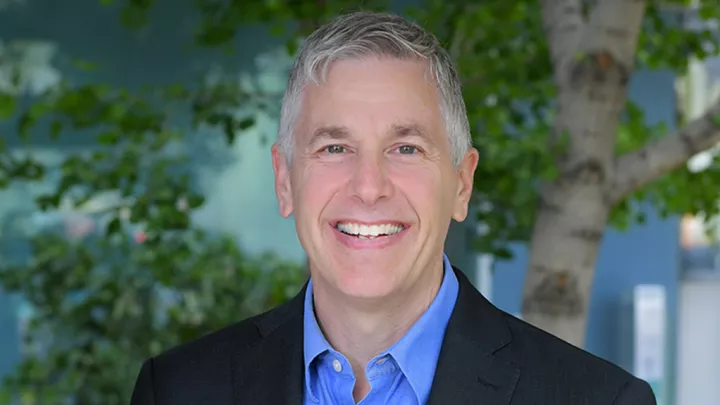
Children’s Hospital Los Angeles doctors advancing cell and gene therapy pediatric care.
Front row (left to right): Leigh Maria Ramos-Platt, MD; Alan S. Wayne, MD.
Back row (left to right): Paibel Aguayo-Hiraldo, MD; Aaron Nagiel, MD, PhD; Thomas Coates, MD; and Guy Young, MD.
Children’s Hospital Los Angeles Adds Transformative Gene Therapy and Expands to 10 Treatments, Becoming the Largest Provider of Pediatric Cell and Gene Therapies on the West Coast
LOS ANGELES (January 27, 2025) — Children’s Hospital Los Angeles (CHLA), a national leader in advanced pediatric medical care and innovative cell and gene therapy research and treatment, announced today the addition of its 10th cell and gene therapy treatment, establishing CHLA as the pediatric provider offering the most FDA-approved, state-of-the-art cell and gene therapy treatments on the West Coast. This milestone underscores CHLA’s unwavering commitment to improving outcomes for pediatric patients with debilitating and life-threatening conditions and expanding access to critical healthcare services.
CHLA’s newest gene therapy offering is Casgevy, which treats sickle cell disease and transfusion-dependent beta thalassemia, adding to the hospital’s existing portfolio of nine groundbreaking treatments. Together, these cell and gene therapies address a broad spectrum of critical health needs for children, adolescents, and young adults, providing options for patients seeking advanced care for conditions like sickle cell disease, hemophilia, thalassemia, leukemia, vision loss from inherited retinal dystrophy, spinal muscular atrophy and muscular dystrophy.
“This is a transformative time for Children’s Hospital Los Angeles and the pediatric community we serve,” says Alan S. Wayne, MD, Pediatrician-in-Chief at Children’s Hospital Los Angeles. “With the addition of this gene therapy, we are further advancing our mission to create hope and build healthier futures for patients and families by providing access to paradigm-changing therapies that offer the prospect of cure and improved quality of life.”
“These new therapies represent the next generation of medical innovation,” says Malika Maddison, Vice President of Service Line Strategy and Operations at Children’s Hospital Los Angeles. “Our ability to offer these treatments ensures that our patients have access to world-class care.”
CHLA currently offers the following FDA-approved cell and gene therapies:
- Casgevy (treats sickle cell disease and transfusion-dependent beta thalassemia)
- Elevidys (treats Duchenne muscular dystrophy)
- Hemgenix (treats hemophilia B)
- Kymriah (treats B-cell acute lymphoblastic leukemia and diffuse large B-cell lymphoma)
- Luxturna (treats inherited retinal disease)
- Lyfgenia (treats sickle cell disease)
- Omisirge (treats patients with blood cancers undergoing umbilical cord transplantation to minimize infection risks)
- Roctavian (treats hemophilia A)
- Zolgensma (treats spinal muscular atrophy)
- Zynteglo (treats transfusion-dependent beta thalassemia)
CHLA’s history in gene therapy innovation dates back to the 1990s, when researchers at CHLA and the Keck School of Medicine of USC received a grant from the National Institutes of Health to construct one of the first academic cell and gene manufacturing facilities in the nation under the FDA’s current good manufacturing practice (cGMP) standards.
In 1996, CHLA researchers in this cGMP facility developed a new pediatric stem cell gene therapy, supporting the first clinical trial and the first cures for newborns with a severe type of immunodeficiency known as ADA SCID.
Today, CHLA collaborates with USC in a state-of-the-art laboratory dedicated to advancing gene and cell therapies at both institutions. In 2022, the USC/CHLA Cell Therapy program was awarded an $8 million grant from the California Institute for Regenerative Medicine to support infrastructure to accelerate development and increase access to cell and gene therapies.
CHLA’s specialized medical expertise is vital in pediatric gene therapy research and treatment, helping to ensure the best possible outcomes for children and young adults. CHLA’s teams work together across the hospital to provide comprehensive and personalized care for each patient and family—all at one location.
To learn more about CHLA’s cell and gene therapies, please visit CHLA.org/GeneTherapy.
About Children’s Hospital Los Angeles
Founded in 1901, Children’s Hospital Los Angeles is at the forefront of pediatric medicine and is the largest provider of hospital care for children in California. Children’s Hospital is home to renowned experts who work together across disciplines to deliver inclusive and compassionate care, and drive advances that set pediatric standards across the nation and around the globe. Children’s Hospital Los Angeles provides a level of care to its diverse population of children that is among the best in the world. The hospital is consistently ranked in the top 10 in the nation on U.S. News & World Report’s Honor Roll of Best Children’s Hospitals. CHLA is the top-ranked children’s hospital in California and the Pacific U.S. region for 2024-25. Children’s Hospital Los Angeles embraces its mission to create hope and build healthier futures. Children’s Hospital Los Angeles is among the top 10 children’s hospitals for National Institutes of Health funding. The Saban Research Institute of Children's Hospital Los Angeles supports the full continuum of research, allowing physicians and scientists to translate discoveries into treatments and bring answers to families faster. The pediatric academic medical center also is home to one of the largest training programs for pediatricians in the United States. And the hospital’s commitment to building strong communities is evident in CHLA’s efforts to fight food insecurity, enhance health education and literacy, and introduce more people to careers in health care. To learn more, follow CHLA on Facebook, LinkedIn and X, formerly known as Twitter, and visit CHLA.org/blog.


